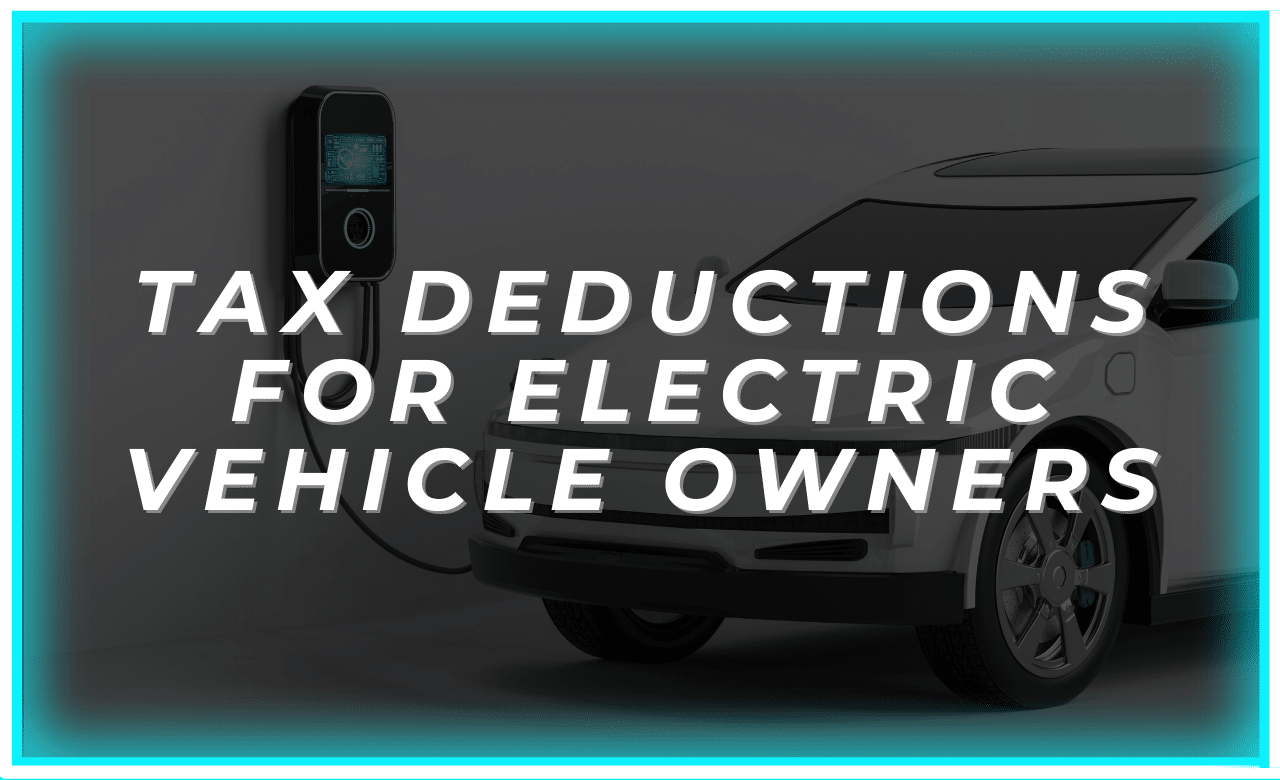Hey guys, it’s Bette Hochberger, CPA, CGMA here, and I wanted to hop on real quick to discuss electric vehicle tax deductions. Electric vehicles (EVs) are not only an eco-friendly choice but can also offer significant tax benefits for individuals and businesses.
Whether you’re considering an EV for personal use or as part of a business fleet, understanding the available tax deductions and credits can help offset the cost of your investment. Here’s what you need to know about the current electric vehicle tax incentives.
Federal Tax Credit for Electric Vehicles
The Clean Vehicle Credit (formerly known as the Electric Vehicle Tax Credit) is the most notable tax incentive available at the federal level. This credit allows eligible buyers of new electric or plug-in hybrid vehicles to claim up to $7,500 on their federal tax return. However, the exact amount you qualify for depends on a few key factors:
– Vehicle Make and Model: Not all EVs qualify for the full credit. Some manufacturers have reached the cap on how many credits they can offer (for example, Tesla and General Motors vehicles no longer qualify for the federal credit). You can check the eligibility of your vehicle on the IRS website.
– Battery Capacity: The credit is directly tied to the size of the battery in your vehicle. The larger the battery, the bigger the potential credit.
– Vehicle Price: Starting in 2024, the credit only applies to vehicles priced under certain limits—$55,000 for cars and $80,000 for trucks and SUVs.
It’s important to note that this credit is non-refundable, meaning it can only reduce your tax liability. If you owe less than the credit amount, the excess will not be refunded.
State-Level Incentives
In addition to the federal tax credit, many states offer their own incentives for purchasing an EV. These can include tax credits, rebates, or even reduced registration fees. For example:
– California offers rebates of up to $2,000 for eligible EVs.
– New York provides rebates of up to **$2,000** through its Drive Clean Rebate program.
– Colorado offers a state tax credit of up to **$2,500** for electric vehicles.
Be sure to research your specific state’s incentives, as they can vary greatly and change over time.
Business Deductions for Electric Vehicles
If you’re a business owner looking to add electric vehicles to your fleet, there are additional deductions you can take advantage of:
– Section 179 Deduction: For businesses, the cost of certain EVs used for work purposes may qualify for the Section 179 deduction. This allows you to deduct the cost of purchasing a vehicle (up to certain limits) in the year it was placed into service, rather than spreading it out over several years.
– Bonus Depreciation: In addition to the Section 179 deduction, businesses can also take advantage of bonus depreciation for qualified EVs, allowing you to write off a large portion of the vehicle’s cost in the first year.
– EV Charging Stations: If your business installs EV charging stations, you may be eligible for the Alternative Fuel Vehicle Refueling Property Credit, which covers 30% of the cost of installing charging stations, up to $30,000.
Tax Considerations for Used EVs
Beginning in 2023, there’s also a tax credit available for used electric vehicles. Buyers of qualified used EVs can claim a credit of up to $4,000 or 30% of the vehicle’s purchase price, whichever is less. However, the vehicle must meet specific criteria, including being at least two years old and costing less than $25,000.
The Future of EV Tax Credits
The electric vehicle tax landscape continues to evolve. The Inflation Reduction Act passed in 2022 made significant changes to EV tax credits, including expanding the list of eligible vehicles and introducing new requirements for battery manufacturing. Starting in 2024, consumers will have the option to apply their tax credit at the point of sale, reducing the upfront cost of the vehicle.
How to Claim the EV Tax Credit
To claim the federal tax credit for a new or used EV, you’ll need to file IRS Form 8936 with your federal income tax return. If you’re purchasing through a business, your tax preparer can assist with ensuring you maximize both the Section 179 deduction and the EV credit.
Investing in an electric vehicle offers more than just environmental benefits—it can also provide substantial tax savings. Whether you’re an individual buyer or a business owner, understanding the federal and state incentives available can help you make the most of your EV purchase. As tax laws change frequently, consulting with a CPA can help you stay informed and take advantage of all available deductions.
Considering an EV? Reach out to us today to ensure you’re maximizing your tax benefits!
As always, stay safe, and I’ll see you next time!










